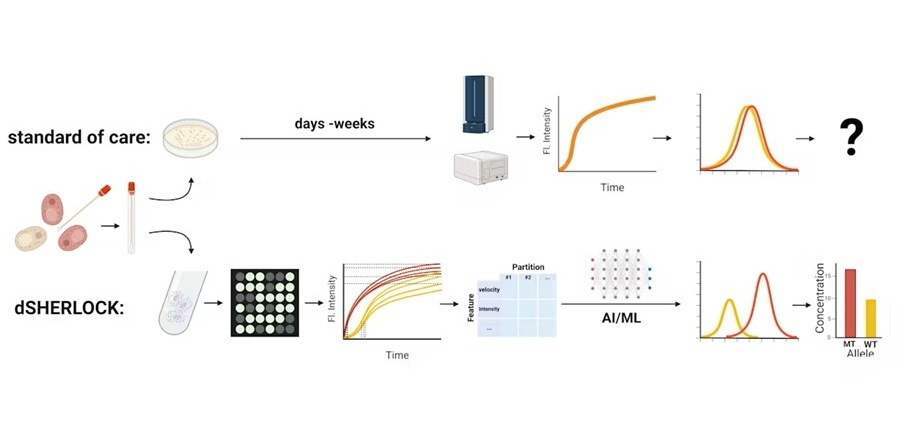Diagnostic Assay Detects HIV Antigens and Antibodies
By LabMedica International staff writers
Posted on 01 Jul 2010
A blood test can determine the presence of human immunodeficiency viral (HIV) antigen and antibodies to the virus. Posted on 01 Jul 2010
The highly sensitive assay is intended to be used as an aid in the diagnosis of HIV-1/HIV-2 infection, including acute or primary HIV-1 infection. This assay is for use as an aid in the diagnosis of HIV-1/HIV-2 infection in adults including pregnant women and infections in children as young as two years old.
The chemiluminescent microparticle immunoassay (CMIA), called ARCHITECT HIV Ag/Ab Combo, actually detects specifically the HIV antigen, and can therefore diagnose the infection before the emergence of antibodies. Most tests used today in the diagnostic setting detect HIV antibodies only. Although direct detection of the virus itself by nucleic acid testing is available, it is not widely used in diagnostic settings
The ARCHITECT HIV Ag/Ab Combo assay is manufactured by Abbott Laboratories, (Abbott Park, IL, USA). It is designed for the simultaneous qualitative detection of human immunodeficiency virus (HIV) p24 antigen and antibodies to HIV type 1 (HIV1 group M and group O) and/or type 2 (HIV-2) in adult and pediatric serum and plasma. Two types of HIV have been identified: HIV-1 and HIV-2. HIV-1 is responsible for most HIV infections throughout the world. HIV-2 is found primarily in West Africa; however, cases of HIV-2 infection have been reported in North America and Europe.
The assay has been approved by the U.S. Food and Drug Administration (FDA; Rockville, MD, USA). Karen Midthun, M.D., acting director of FDA's Center for Biologics Evaluation and Research said, "The approval of this assay represents an advancement in our ability to better diagnose HIV infection in diagnostic settings where nucleic acid testing to detect the virus itself is not routinely used. It provides for more sensitive detection of recent HIV infections compared with antibody tests alone."
Peter Leone, M.D., medical director of the North Carolina HIV/sexually transmitted diseases (STD) Prevention and Control Branch, (UNC; Chapel Hill, NC) said that, "Since individuals are most infectious to others shortly after infection, detecting HIV earlier is critical and life saving. A significant percentage of new HIV infections are transmitted by someone with an undetected acute infection, so identifying more people earlier offers a significant opportunity for counseling, which can reduce high-risk behaviors and also initiate antiretroviral treatment for early-stage infection, if appropriate." There are 56,000 new cases of HIV in the United States annually and it is estimated that 2.7 million people throughout the world are newly infected with HIV each year.
Related Links:
Abbott Laboratories
US Food and Drug Administration
University of North Carolina









 Analyzer.jpg)



